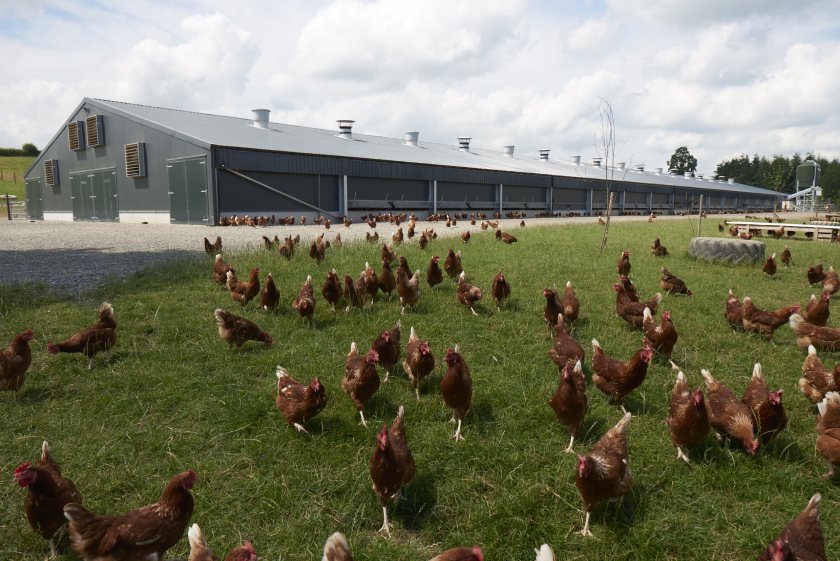World Food Safety Day: Egg sector urged to stay vigilant against Salmonella

With World Food Safety Day on 7 June, egg producers are reflecting on food safety and the real cost of letting Salmonella standards slip.
The sector has come a long way in the last 30 years, and technical consultant at Elanco Animal Health, Dr Joshua Davison, says the standards of food safety in egg production are exceptional.
“The contributions by egg producers, in combination with the support from the Lion Code, has had a huge impact on the safety of eggs for human consumption in the UK,” he explains.
“But we can’t deny that Salmonella will continue to be a threat to the egg industry for years to come, so we must uphold the high standards of food safety we currently employ.”
Dr Davison welcomed eggs being recognised as an important and accessible source of high-quality protein, with growing awareness of their nutritional value.
“Affordable, versatile, and appealing to millions of UK consumers, eggs are finally getting the recognition they deserve – reinforcing the need to protect their reputation,” he says.
However, Dr Davison notes that the full cost of a Salmonella outbreak is not always fully appreciated and he encourages producers to continue prioritising prevention.
Salmonellosis represents half of all global foodborne outbreaks requiring hospitalisatio and causes approximately 59,000 deaths each year.
The price of an outbreak in free-range birds in the UK is estimated at £17 per bird. This includes the cost of replacement pullets, the loss of income, and costs associated with cleaning and disinfection.
“£17 might not seem a significant amount, but when you’ve got tens of thousands of birds being culled, that £17 quickly becomes a much bigger figure,” explains Dr Davison.
The loss of income is also exacerbated depending on when the outbreak occurs, he notes.
“With commercial laying bird cycles extending for ever longer, if an outbreak occurs early in a cycle, it can be many weeks until the next crop of planned replacement pullets is available."
In a volatile climate, Dr Davison says it may be tempting to reduce spending on disease prevention, but he warns that this is a false economy.
“With Salmonella prevalence currently so low in the UK, it’s easy to think that easing off on control measures could help cut costs.
"But the reality is, the financial and reputational risks of an outbreak far outweigh any short-term savings,” he says.
To avoid the risks of a Salmonella outbreak, Dr Davison recommends a three-pronged approach – biosecurity, monitoring and vaccination.
He says each element plays a vital role in helping to prevent the risk of a disease outbreak in the production cycle.
“Biosecurity measures, such as strict rodent control, and robust cleaning and disinfection protocols between crops, form a basic layer of defence,” he explains.
“Monitoring combines mandatory routine Salmonella testing with regular checks for any potential risks within the shed, such as evidence of rodents, which would prompt the need for tighter biosecurity measures.”
Vaccination is the third and final element to a multi-pronged approach, which Dr Davison says is most effective when complemented by biosecurity and monitoring.
“Interestingly, the UK is the only country where vaccination for the two regulated strains of Salmonella – Salmonella Enteritidis (SE) and Salmonella Typhimurium (ST) – is mandatory,” he adds.
There are several vaccination options available, but Dr Davison highlights that AviPro™ Salmonella Duo’s dual-strain coverage in a single dose offers a practical advantage for producers aiming to simplify their protocols without compromising protection.
When selecting a vaccine, he says it is important to understand whether differentiation testing may be required during routine monitoring.
“Some vaccines can grow on culture plates used during routine Salmonella testing, and this may trigger additional steps to confirm whether a positive result is from the vaccine or a field strain,” Dr Davison explains.
“This process can put delays and added expense on production, so choosing a vaccine which avoids this uncertainty can help maintain smooth farm operations and reduce any downtime, which can ultimately have a financial impact.”
Compared to many other European countries, the UK has one of the lowest prevalence of Salmonella – a testament to the high standards maintained by the nation’s egg producers.
But Dr Davison says this success should not lead to complacency: “The fact we’re not seeing cases is precisely because of the Lion Code and the preventative measures implemented on-farm.
“It’s therefore vital we continue that effort to maintain the UK’s strong track record in Salmonella control.”








